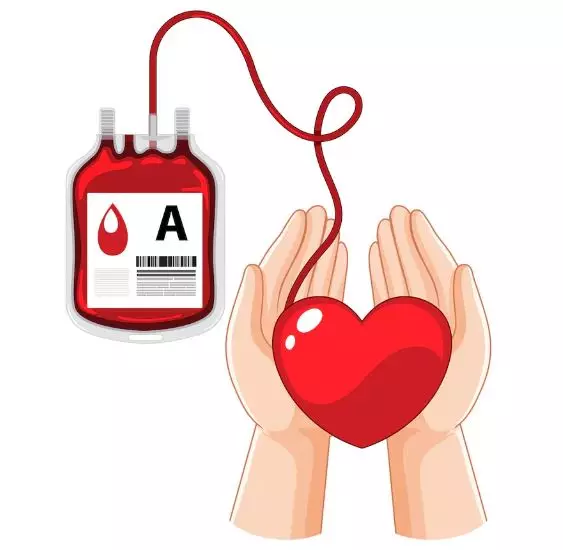foto: freepik.com/brgfx
Brilio.net - Blood donation is a form of kindness that can save other people's lives. Many people donate blood regularly, some even do it more often than recommended. There is an assumption that donating blood too often can have positive and negative impacts on health, including claims that donating blood can be addictive.
Most of you probably know that donating blood has health benefits. In addition to helping others, donating blood can also provide physical benefits for the donor himself. However, it is important to understand the recommended limits and how your body will react if you donate blood too often.
Can blood donation really cause side effects? Some people claim that they feel addicted to continue donating blood. Brilio.net will explore more deeply about the benefits of blood donation, the side effects if done too often, and whether it is true that blood donation can be addictive. Check out brilio.net's review from various sources, Wednesday (18/9).
Benefits of donating blood too often.

photo: freepik.com
1. Reduces the risk of heart disease.
Regular blood donation can help reduce excess iron levels in the body. Excess iron can trigger cholesterol oxidation, which ultimately increases the risk of heart and blood vessel disease. Studies have shown that blood donors are less likely to have a heart attack than those who do not donate blood.
2. Helps regulate blood pressure.
Blood donation can also help stabilize blood pressure. In the process of blood donation, the body must adapt to the sudden reduction in blood volume, which can then train the cardiovascular system. As a result, blood pressure tends to be more stable and the risk of hypertension can be reduced.
3. Increase the production of new blood cells.
Every time you donate blood, your body responds by producing new blood cells to replace those lost. This process helps maintain the balance of red blood cell production in your body. By donating blood regularly, your body is always ready to renew its blood cells, which can improve your overall health.
4. Detect disease early.
Every time you donate blood, you have to undergo a series of health tests. These tests can help detect diseases, such as HIV, hepatitis, or other diseases, at a very early stage. Regular blood donation can be a useful early detection tool to prevent diseases from developing further.
Side effects of donating blood too often.

photo: freepik.com
1. Anemia.
One of the biggest risks of donating blood too often is anemia, or a lack of red blood cells. If the body is not given enough time to restore lost blood cells, the donor can experience fatigue, dizziness, or even fainting. That's why there's a minimum recommended time between one blood donation and the next, usually about 2 to 3 months.
2. Decreased iron levels.
Excessive blood donation can cause a decrease in iron levels in the body. Iron is needed to produce hemoglobin, a protein responsible for transporting oxygen in the blood. Iron deficiency can cause extreme fatigue and other health problems if not addressed with iron-rich foods.
3. Damage to the immune system.
Although the health benefits of donating blood are enormous, donating too often can suppress the immune system. The immune system needs time to recover after losing red blood cells, so donating too often can make the body more susceptible to infection or disease. That's why it's important to give the body enough time to recover between blood donation sessions.
4. Dizziness or fainting.
The most common side effect of donating blood is dizziness or fainting, especially if you haven't had enough rest or nutrition before donating. Donating too often can worsen this effect, so it's important to make sure your body is in top condition before donating blood.
Is it true that donating blood is addictive?

photo: freepik.com/brgfx
There are some reports that some people feel "addicted" to donating blood, but this is not a physical addiction like that experienced with narcotics or other addictive substances. This phenomenon is more of a psychological addiction, usually related to feelings of pleasure, satisfaction, or meaning after donating blood. After donating blood, a person may feel that they have done a good deed that can improve their mood or provide emotional satisfaction.
Research from the American Psychological Association states that social actions that help others, such as blood donation, can trigger the production of endorphins in the brain. Endorphins are hormones that function to increase feelings of happiness and satisfaction. This condition is known as the "helper's high," where someone feels better and calmer after doing a good deed.
Those who regularly donate blood may experience these effects repeatedly, leading to a desire to donate blood again. However, there is no scientific evidence to support a physical addiction to blood donation. This psychological addiction may be due more to the positive feelings and emotional impact of the act of kindness, rather than to the direct physical effects on the body.
(brl/jad)